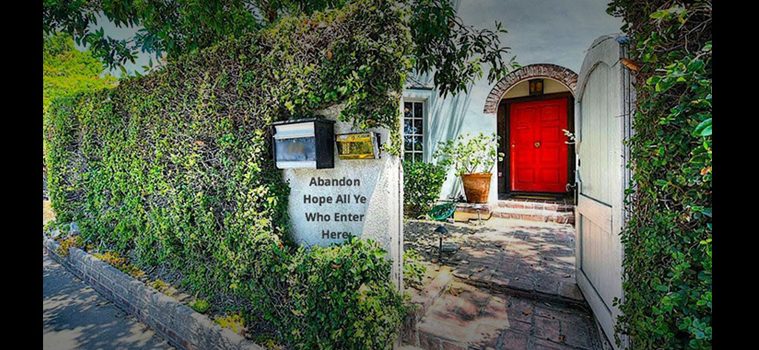SOBER DYING –
July 22, 2021 – The Red Door’s niche in L.A.’s competitive premium-rehab realm isn’t luxury accommodations or individually tailored care plans. Those are givens. Instead, it’s a firm commitment to what the couple characterize as its harm-reduction approach to treatment.
Harm reduction, a catchall for various non-penalizing alternatives to abstinence (from supplying sterilized needles to providing safe harbor), has the immediate goal of limiting the risk of death or of contracting infectious diseases, such as HIV.
“I’ve worked with that same population: a lot of well-known and high-net-worth clients,” says addiction counselor Seven Graham, who helped establish the Amy Winehouse Foundation. Graham became familiar with the Red Door and its clients while attending a weekly recovery meeting that took place there. “[Harm reduction] is all about meeting them where they’re at, accepting that some people will come see you but they’re not ready to stop [using at that time]. It’s an incredibly high-risk strategy. If it goes wrong, it can go horribly wrong.”
The facility’s critics, including Graham, contend that harm reduction has served as a cover for institutional recklessness. One woman in her 20s, the daughter of a studio head, who was in residence at the Red Door between 2019 and 2020, says that “the sober companions weren’t there to keep you from doing drugs. They were there to keep you from dying. My sober companion drove me to my dealer. I was doing Xanax, cocaine, Oxy. The thinking was: ‘You’re going to do it anyway, so you’re safer with me’ — which, honestly, is true.”
Still, she believes that, ultimately, the Red Door isn’t virtuous but vulturous. “It’s an approach that preys on addicts,” she says. She claims that her family was charged for treatment services, including urine analysis, that weren’t performed. “When other people are allowed to use around you, that’s not an environment where you’re going to get better.”



